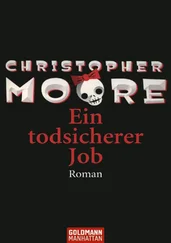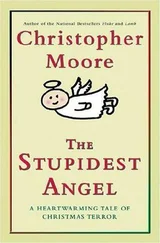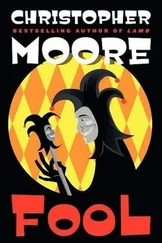Christopher WunderLee - Moore's Mythopoeia
Здесь есть возможность читать онлайн «Christopher WunderLee - Moore's Mythopoeia» весь текст электронной книги совершенно бесплатно (целиком полную версию без сокращений). В некоторых случаях можно слушать аудио, скачать через торрент в формате fb2 и присутствует краткое содержание. Год выпуска: 2010, Издательство: Picaro Editions, Жанр: Современная проза, Фантастика и фэнтези, на английском языке. Описание произведения, (предисловие) а так же отзывы посетителей доступны на портале библиотеки ЛибКат.
- Название:Moore's Mythopoeia
- Автор:
- Издательство:Picaro Editions
- Жанр:
- Год:2010
- ISBN:нет данных
- Рейтинг книги:3 / 5. Голосов: 1
-
Избранное:Добавить в избранное
- Отзывы:
-
Ваша оценка:
- 60
- 1
- 2
- 3
- 4
- 5
Moore's Mythopoeia: краткое содержание, описание и аннотация
Предлагаем к чтению аннотацию, описание, краткое содержание или предисловие (зависит от того, что написал сам автор книги «Moore's Mythopoeia»). Если вы не нашли необходимую информацию о книге — напишите в комментариях, мы постараемся отыскать её.
Moore's Mythopoeia — читать онлайн бесплатно полную книгу (весь текст) целиком
Ниже представлен текст книги, разбитый по страницам. Система сохранения места последней прочитанной страницы, позволяет с удобством читать онлайн бесплатно книгу «Moore's Mythopoeia», без необходимости каждый раз заново искать на чём Вы остановились. Поставьте закладку, и сможете в любой момент перейти на страницу, на которой закончили чтение.
Интервал:
Закладка:
Christopher WunderLee
Moore's Mythopoeia
for a muse
Imagine there’s no heaven
It’s easy if you try
No hell below us
Above us only sky
Imagine all the people
Living for today…
Imagine there’s no countries
It isn’t hard to do
Nothing to kill or die for
And no religion too
Imagine all the people
Living life in peace…
— John Lennon* * *
A voice they could all remember spread out over the city. Through it, all things were explained; without it, nothing was known. It is life, and that life is the light of the city. The voice resonates in the bourbon dawn, but the light has not understood it. It is familiar to them all, but no one could say where they had heard it before.
The crowd is listening, they’ve stopped with shopping bags in their hands, with bagels and cream cheese hovering inches from their lips, with Styrofoam cups steaming in the cold morning air, with confused eyes, and whispers. No one will say what they are thinking. This is the voice of an individual, speaking. This is something I’ve heard before, but not in my lifetime. The crowd is listening, teenagers in uniforms, popping bubble gum, shifting book bags, forgetting to think about the way they look to others; tired mothers with exhausted children sniffling over a toy they weren’t able to buy, a piece of candy their hateful parent refused to purchase for them, the women intent on grocery lists, dry-cleaning that must be picked up, children that must be driven to soccer fields, friend’s houses, dinner that must be prepared, appliances that must be received from fix-it stores; businessmen who are hurrying to high-rises and meetings. The street is frozen in time, no one can move. The voice has caught them like the corner of a desk grabbing a loose sleeve, jerking them to a standstill. Car doors are open, but no one’s gotten in. Buses are waiting for their passengers, but no one’s taken the first step into the cabin. A policeman, directing traffic, has stopped the entire intersection, his arm lifted, his whistle still attached to his lip by dried saliva.
The voice is coming from within the crowd. It is on the sidewalk, below a tenement, it’s still talking, still forcing them to listen. They have had time to realize what they’re hearing, time to consider their inertia, time to contemplate the words. And the voice dies away, fluttering into silence like the sound of birds leaving for the winter.
Nothing is ever too late, nothing can be absent for too long. Progress proceeds in a mechanical fashion, there is no morality, no ethics, no considerations. It must proceed for the good of all. If one or two are killed to make a safer automobile, so be it. If a few men fall to their deaths while constructing a bridge between two great metropolises, their deaths were not in vain. If a few thousand people are impoverished so that a corporation can save itself money, continue to build, to produce, than their sacrifice is holy. This is the writ of capitalism; this is the republic for which it stands. In business we trust. Out of many, one.
They move, again. They take steps into buses, trolleys, into buildings and into cars. The policeman removes his whistle from his mouth and signals for a line to go. A businessman throws down a cigarette butt (non-carcinogenic) that burned in his mouth without a single drag and swears to himself. A mother pulls the arm of her child, who stumbles over the curb, and begins to cry again over the shiny lollypop that he could taste in his mouth, at the counter of the supermarket. The mother goes back to the article she read in the tabloid about the famous Graham Greene, he may be a transsexual and has requested a sex change operation. She returns to her revulsion as though she had not been interrupted. A young girl, in a pressed, argyle skirt, with navy blue stockings and penny loafers, smacks her gum, and twists a string of her hair in her middle finger. She looks over to see an ugly boy watching her and she scrunches her nose, spins on her heel, and walks away, muttering to herself.
The movement of the city does not stop again. It had never stopped for anything before, it will forget that it had that morning. The city is an organism, a colony of smaller cells that each perform a function to facilitate its continued existence. The men, the children, the wives, the police, the fire department, the government officials, the service workers who pick up garbage, clean the streets, blow leaves back into the autumn, and clip tree branches that grow into the thoroughfares, contribute to the life of the organism. Each person’s duty is integral for survival, from the smallest act of a child behaving his parent’s wishes, to the city council arguing over a new proposal for mass transportation. The city cannot have dissension anymore than the human body can allow its cells to make their own decisions. There must be cooperation, subjugation, agreement, and coordination. The body cannot exist without the collective functioning properly, in unison, without derision, without discussion. The city exists because of the collective effort of the many, it cannot change without general agreement, it cannot alter itself without referendum.
A voice like that, out here, is dangerous. Be quiet. Do as you’re told. You have your instructions. Follow him and he will follow the one before him, and he the man before him. The line must hold, remain moving. The machines cannot stop, immobility means decay. The voice could turn off the lights, the voice could cause a car accident, the voice could stall the printing press, delay a meeting, confuse, change, pause. The voice is unclean, irresponsible, circumspect. The voice does nothing for the continuation of the city’s efforts, it is for the speaker’s own purposes, it assaults citizens’ ears without asking permission, it is invasive. Can the voice light the street for you? Can the voice provide you with employment? Can the voice protect you from the darkness? Does the voice have a freeway to the suburbs? Does the voice have a phone company, a gas company, an electricity company? Do you think the voice can provide shelter, clothing, entertainment? Move along, now. The voice is over. Forget you ever heard it, it said nothing of importance. Move along. It is over — nothing more to hear here.
There are no existentialists in utopia.
* * *
“I can’t get all that. And you know that. You’re very reasonable, not like certain people. You know I can’t get all that, not with a bag this size. You’re reasonable, the both of you are.
“You’d never expect me to get all that. I’ll just bring it along, some of these things I’ll be able to get but not all of it. I’m not even sure we need all of it. You’re very reasonable. Theo, I can tell you’re a little judgmental, I can tell by the way you look at me, but you’re not unreasonable, not by any means. Your judgment is sound. I know I don’t play with you enough, the litter boxes do get a little out of hand before they’re cleaned, I know you feel trapped, stifled here. That’s all very reasonable. Being judgmental and unreasonable are to very different things, very different, indeed. But Theo, you have the qualities of a very reasonable kitty cat. You don’t expect me to get all this stuff, not by any means. You’re a very reasonable kitty cat, the both of you are and I appreciate it. I appreciate it very much. That’s why I’m going to feed you before I leave. Yes, I might be back in time for dinner, but what if I’m not? Who’s going to feed my two lovely, very reasonable kitty cats? Not the wind, not the unreasonable people who make these grocery lists, not by any means.
Читать дальшеИнтервал:
Закладка:
Похожие книги на «Moore's Mythopoeia»
Представляем Вашему вниманию похожие книги на «Moore's Mythopoeia» списком для выбора. Мы отобрали схожую по названию и смыслу литературу в надежде предоставить читателям больше вариантов отыскать новые, интересные, ещё непрочитанные произведения.
Обсуждение, отзывы о книге «Moore's Mythopoeia» и просто собственные мнения читателей. Оставьте ваши комментарии, напишите, что Вы думаете о произведении, его смысле или главных героях. Укажите что конкретно понравилось, а что нет, и почему Вы так считаете.












